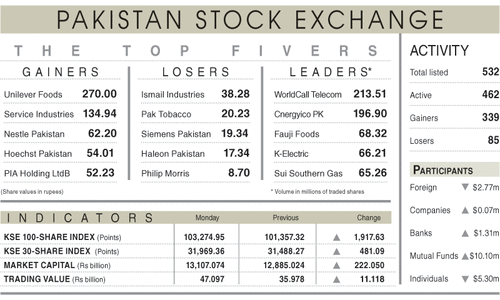SINGAPORE, Aug 30: Pakistan's diesel demand is forecast to jump 70 per cent in a decade to 15.07 million tons, as the overall fuel consumption almost doubles, forcing the country to boost imports, an oil official said on Wednesday.
Total demand for oil, which accounts for 31 per cent of the country's energy needs, will grow to 32.51 million tons by 2015 and 66.84 million tons by 2030, from 16.8 million tons last year, said M. Adil Khattak, chief executive of Attock Refinery.
To cope with the demand, Pakistan is seeking investments of up to $16 billion for oil-related infrastructure, including refineries, pipelines and storage facilities, he told an oil conference.
But domestic diesel production, even after taking into account three proposed refinery projects, could only yield 10.93 million tons a year, a shortfall of more than four million tons by 2015, he said.
The shortfall of all oil products by 2015 is projected at 30.33 million tons, up from 13.18 million tons in 2005, he said, adding that the deficit would be covered by imports.
“We need the oil and we need to import. Despite the plans to generate more energy using other means including natural gas and LNG, we still need to import substantial volumes,” he told Reuters on the sidelines of the conference.
“We will need to import and large volumes at that. And we will need to have the infrastructure in place to cater for the incremental volumes,” he said, without giving import projections.
Demand for diesel, used for transportation and agriculture, is projected at around 8.88 million tons this year, and domestic inventories currently stand at 30 days, well below the required 45 days, Mr Khattak added.
NEW REFINERIES: Demand for fuel oil, used mainly for power generation, was also expected to grow at a fast rate, he said, without giving any figures. Most of Pakistan's new power plants are oil-fired thermal units, due to the country's depleting natural gas reserves.
Mr Khattak said part of the incremental demand could be met by supplies from neighbouring India.—Reuters













































Dear visitor, the comments section is undergoing an overhaul and will return soon.